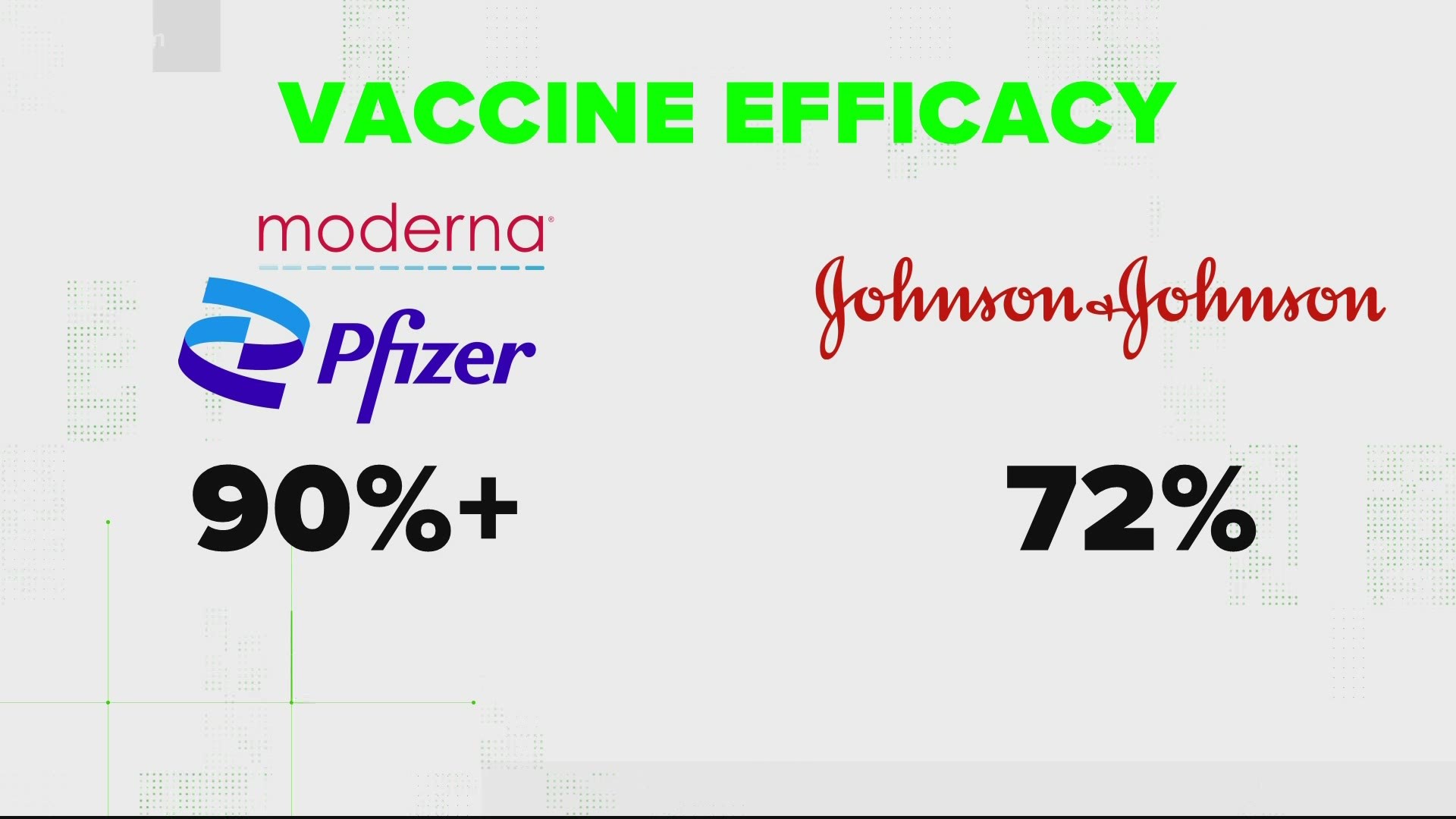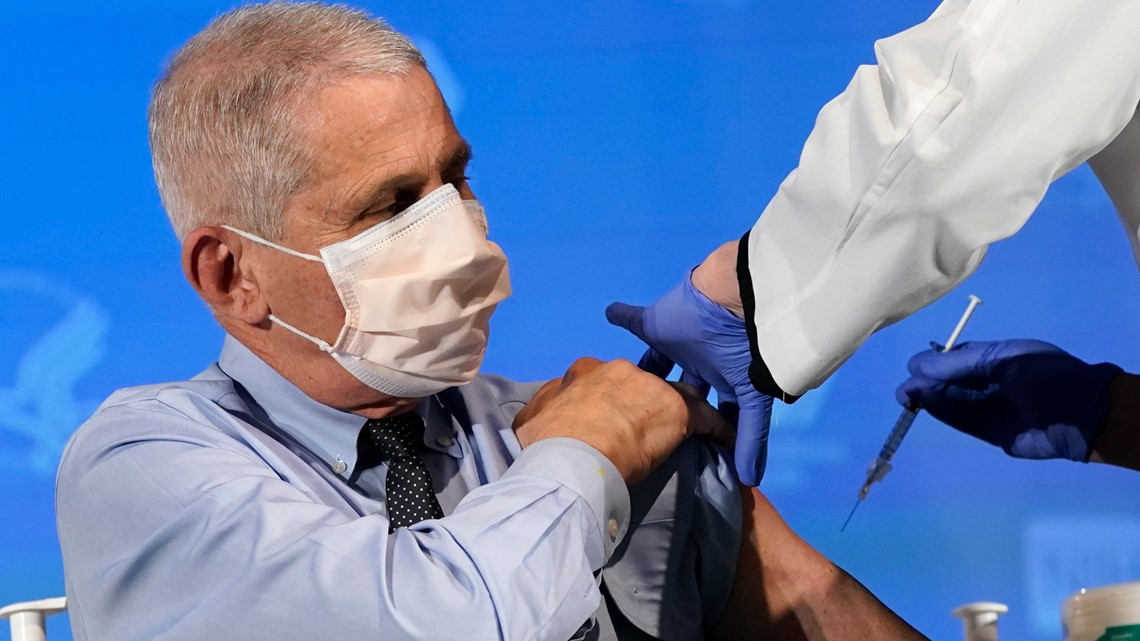WASHINGTON — How much does the efficacy of the vaccine you get matter? Each of the three vaccines approved by the FDA has a different level of effectiveness at fighting COVID-19.
Two of the vaccines have significantly higher efficacy than the other, so does it matter which you get?
Question:
How do we measure a vaccine’s efficacy?
Answer:
The vaccines produced by Pfizer, Moderna, and Johnson & Johnson all have different endpoints so it’s difficult to make direct comparisons.
Our Sources:
The Centers for Disease Control and Prevention (CDC), Dr. Anand Parekh from the Bipartisan Policy Center and Dr. Gigi Gronvall from Johns Hopkins University
What We Found:
According to the CDC, a vaccine’s efficacy measures: “The proportionate reduction in cases among vaccinated persons.”
Here’s how to think of it.
Let’s say you get a 95% effective vaccine and your friend doesn’t. Then you both get exposed to the virus.
“So you have a 95% less risk than your friends. So that's the way you should be thinking about it,” according to Dr. Gronvall.
So when we see that the vaccines produced by Moderna and Pfizer have an efficacy above 90% and Johnson & Johnson’s is 72% in the U.S., it seems pretty clear which one is better.
“You know, I think we all are attracted to numbers,” Dr. Parekh said.
Dr. Parekh explained judging the three vaccines by efficacy is difficult.
“But it's really an apples to oranges comparison between these vaccines, the endpoints of these vaccines were all different.”
According to Dr. Parekh, the Johnson and Johnson trials took place in several different countries.
“So a lot of the variants that we're talking about also were included there versus the Moderna and Pfizer vaccine trials,” he said.
That’s just one factor that could easily lower the efficacy percentage of the vaccine. This is why our experts point to a different number.
“The bottom line is all of these vaccines are nearly 100% effective in preventing hospitalizations and deaths,” Dr. Parekh said.
“It's important to remember that a vaccine is not going to be some sort of bulletproof vest that's going to prevent you from having contact with the virus,” Dr. Gronvall said.


